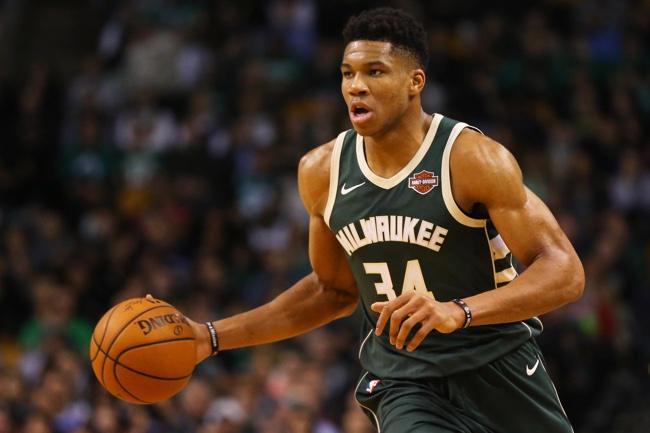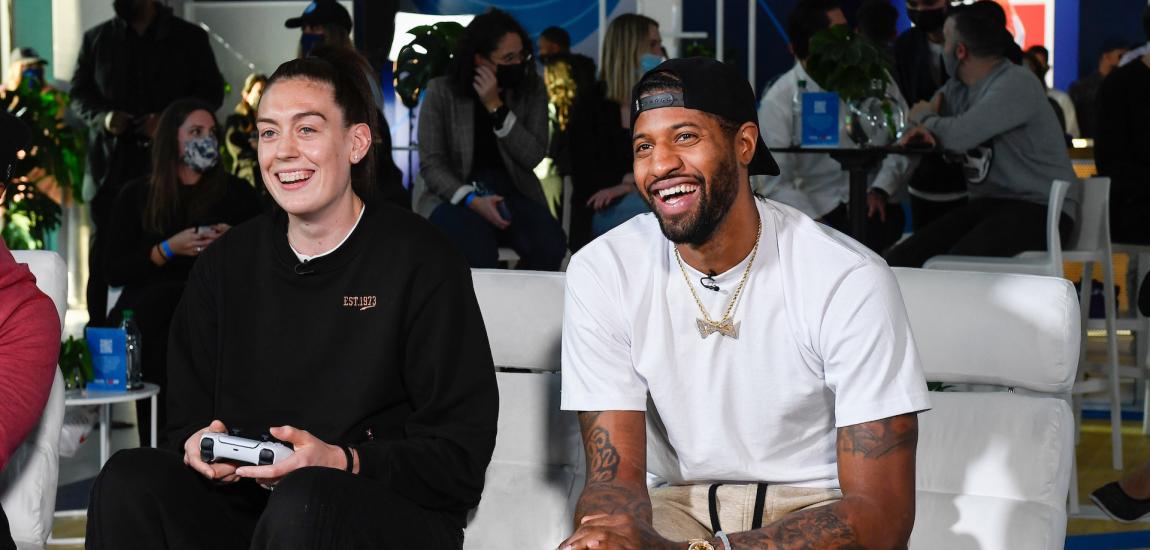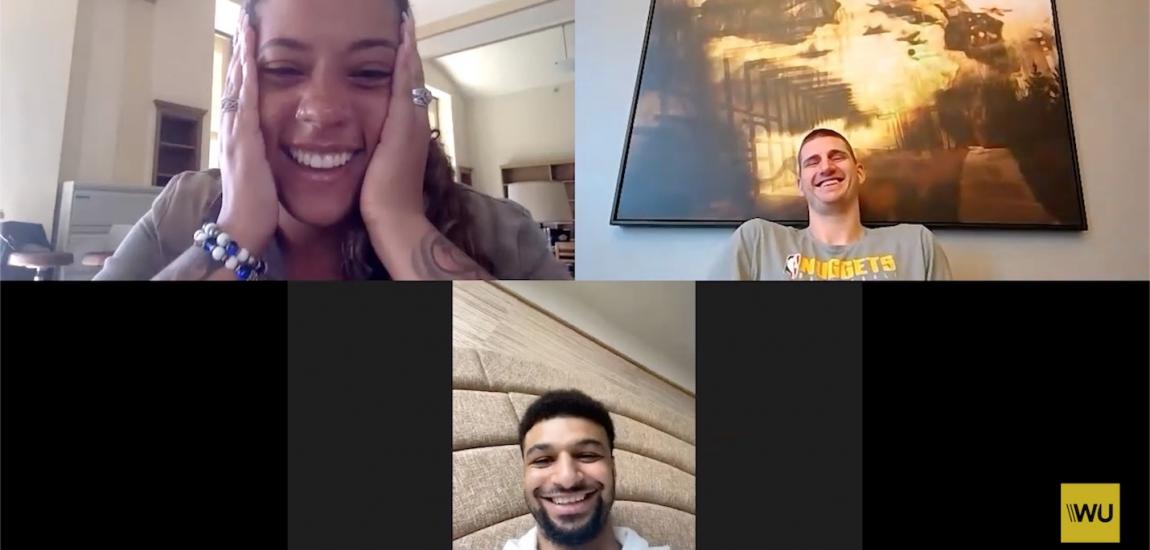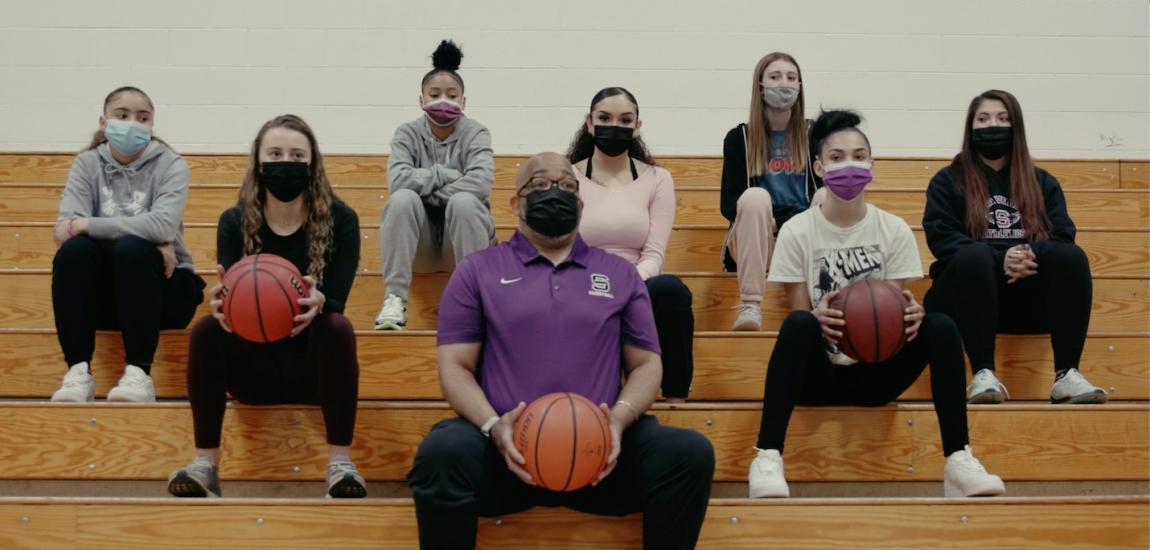Peter Feigin didn't go looking for his job as president of the Milwaukee Bucks. It found him.
Feigin's twin brother, Daniel, is director of the upper school at New York City's Trevor Day School. It so happens Bucks co-owners Marc Lasry and Wes Edens sent their children to Trevor Day. Daniel connected the partners with Peter, then chief marketing and revenue officer of Deluxe Entertainment Services Group, to analyze the franchise from a sales and development angle.
"As we got further along, one of my jobs was to staff up that operation and have a business plan," Feigin remembers. "I did kind of the 'Dick Cheney.' I suggested a lot of people who would be great presidents, and lo and behold, none of them worked out to do it, so I think they had to default to me to run the company."
And with that, Feigin became the business brains behind a team about to set NBA standards in architecture, basketball operations and technology -- only he didn't know it.
Feigin, who had held executive positions at Madison Square Garden, Marquis Jet Partners and NetJets, packed up his New York home and went to Milwaukee in 2014. While previous owner Herb Kohl, the five-term U.S. senator from Wisconsin, stood in high regard in Milwaukee, the franchise had begun to slip. From 2006-2014, the Bucks only made the postseason twice in eight seasons. High draft picks such as Andrew Bogut, Yi Jianlian, Joe Alexander and Brandon Jennings hadn't panned out.
But the Bucks' toughest hit came off the court. In September 2013, then-deputy commissioner Adam Silver announced that Bradley Center, the team's home since 1988, was unfit for an NBA team. Feigin's first task was evident right away.
"We didn't have much time," he says. "We had to build a new arena or we were going to move the team.
In July 2015, Feigin basically introduced himself to Wisconsin lawmakers with a stark proposal: If $250 million in public funding was not approved -- Edens, Lasry, third owner Jamie Dinan and Kohl had already combined to put up $250 million) -- the NBA would exercise its right to buy back the Bucks from the new ownership group for $25 million more than it had paid Kohl. Then it would move the franchise to Las Vegas or Seattle.
"We were, time-wise, kind of lucky," Feigin says with a laugh. "Scott Walker was just at the beginning of a presidential campaign. He wanted to keep the team, which was a big catalyst for the whole movement."
Feigin got the funding approved in the next couple months, and the Bucks signed a 30-year lease to stay in Milwaukee. Step one was complete.
Although he has made a career of being in high-powered executive positions, he doesn't necessarily dress the part all the time. During a media car wash in NYC in December, Feigin opts for a sweater, not a suit and tie. That's actually a step up from the orange vests and hard hats he's been wearing in Milwaukee, constantly checking on the construction of the Wisconsin Entertainment and Sports Center, the non-branded name of the arena. For naming rights, Feigin said the franchise is looking for an international brand willing to spend $7 million to $10 million annually for 20 years.
The arena is Feigin's baby, and he's almost ready to show it off, as doors will open next season. It will host 200 events each year with the Bucks and Marquette men's basketball as anchor attractions.
"It's going to be a blow-away experience beyond expectations for anybody that's been to a pro sporting event in the state of Wisconsin, that's for sure," Feigin says. "We really want it to be a model around the world. We've made it intimate with a 17,500-person crowd. We've made it really authentic and localized with what our food and beverage offerings are going to be. It's really best of class."
The building will also be the focal point of a 30-acre development in downtown Milwaukee, an urban revitalization project that Feigin believes in. When he called Milwaukee "the most segregated, racist place I've ever experience in my life" in 2016, Feigin was just being a straight shooter intent on improving the neighborhood. He continues to build civic and business relationships around town through face-to-face interaction.
"You will be in a business meeting on Monday with one of the 300-500 business executives in the town and you will see them some place later that week or the week after, unlike in New York City," he says.

Feigin can do all the PR he wants, but the most effective pitch to get fans into the new arena is out of his hands. Giannis Antetokounmpo is the gift that keeps on giving for Bucks' management.
"We know the reality is 18 months ago, no one would've said Giannis is one of the top five players in the NBA, so we've had really what we would call the Giannis Effect," Feigin explains. "Very simply, we went into the market and said, 'We're going to build this market. We're going to build it locally, regionally, nationally and then internationally. And we're going to be the No. 1 team in the league, to be the brand representation.' All of a sudden, 12 months ago, that went upside down, and with Giannis, it literally went international, national, regional, local, which is a great turnaround for us."
Antetokounmpo, now in his fifth NBA season, has become a basketball and cultural phenomenon. Through Jan. 15, his PER of 29.82 was second in the league behind James Harden and just ahead of LeBron James and Stephen Curry. The most recent All-Star Game voting returns showed Antetokounmpo at 1.48 million votes, trailing only James.
For Feigin, Lasry, Edens, Dinan, head coach Jason Kidd and the entire organization, Antetokounmpo, born and raised in Greece to Nigerian immigrants, is a business unicorn. He is a legitimate superstar who also manages to bring in the European market. Feigin would not be able to make his global pitch without his star.
He's also been quoted as saying he wants to play for the Bucks "forever" and he does not know if he could be "the same player" in a "flashy city." Antetokounmpo signed a four-year, $100 million extension in September 2016 (right before his first All-Star season) that will keep him under contract in Milwaukee through 2020-21.
As Feigin hones the Bucks' in-arena and digital strategy, The Giannis Effect is the guide.
"We are literally just scraping the surface of what can come from this," he says. "Of course, you have Greece, but Asia is mesmerized by Giannis. And how do we capture that, both digitally and on broadcast? How do we think about marketing around the world?
"Now we have to monitor and figure out and organize the groups that travel from Greece to away games and organize the meet-and-greets after the game, which by the way, aren't scheduled. They just happen to be huge group buys of 200-300 people with Greek flags behind the visiting bench. That's kind of a surreal experience in NBA arenas."
The Giannis Effect has been a product of the digital age. Social media has created an avenue to spread the Bucks' brand beyond Milwaukee and the United States. But Feigin also gives credit to video games. The Bucks are one of the 17 teams that is competing in the new NBA 2K League, a necessary decision in Feigin's mind.
"I have a 14-year-old boy who can basically tell me every single player in the NBA, as well as G-League, what Europeans are playing ... all through NBA 2K," Feigin says. "He plays with the Bucks 95 percent of the time. I watch it.
"Instantaneously, overnight, we have 30 million people playing NBA 2K around the world, probably more, so we begin a league and we have competition on a global basis. This again becomes a platform of an NBA brand extension that just explodes with engagement."
Pass the sticks.
We here.https://t.co/XifcyBIjFY pic.twitter.com/NFiiaWCSUb— Bucks Gaming (@BucksGG) December 14, 2017
Feigin says Bucks Gaming will consist of roughly 10 full-time employees, including the team's five players, who will be housed by the franchise. He notes that with the Bucks also opening a G League team called the Wisconsin Herd this past fall, there was internal debate about making the investment, but Edens was a notable force moving the decision forward. His company, Fortress Investment Group, also owns the eSports team FlyQuest.
While Feigin can watch Antetokounmpo and the Bucks any time he wants on NBA 2K or social media -- "The truth is our digital channels are ten times like what our local broadcasts are," he says -- he has the distinct pleasure in Milwaukee of actually getting to catch the action in person. The Bucks are currently in position to make the playoffs for the second straight year and third time in four years since Feigin and friends took over. This is all a good launch point for Feigin to introduce a state-of-the-art arena.
And to think it all started at a private school in New York City. This is why you go to Parents' Night, folks.
-- Follow Jeff Eisenband on Twitter @JeffEisenband. Like Jeff Eisenband on Facebook.




